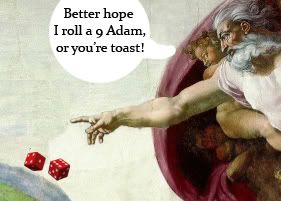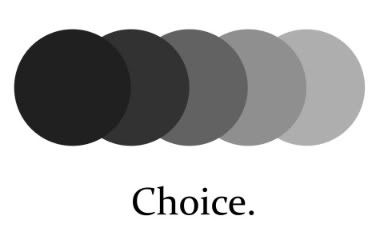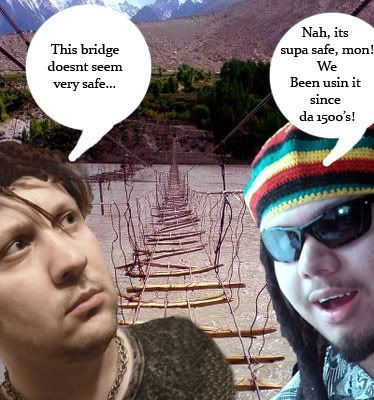
God cannot?
This is the conclusion we must come to, if the Arminians are correct(this is where most of mainstream theology falls). Because they propose that although God would really like all peoples to be saved, he cannot execute it because of "free" will. This is the more "friendly" conclusion of the two, since it paints God as sortof a hopeless romantic, rather than a big-fat-meanie-face. Yet I find it poses God as either very weak, or very in lack of priority.
In this view, He seems very weak because there is a force(ie human "free" will and or Satan) that can overcome His plans against His will, and for all eternity none the less. Either that, or He seems very in lack of priority because (as I stated in last weeks blog) He views human "free" will as the most sacrosanct thing in all the universe, even in the case of it doing irreparable destruction to ourselves. And as I said before, that would not be a demonstration of ultimate love, but a demonstration of ultimate apathy for His very own creations.
If we boil the "God cannot" theology down even father, we continue to find the same apathy. Because even though God isnt barring anyone from accepting his grace, He already knows that most will never accept or benefit from it. But if God knew that all humankind could not be saved(despite His desire to) that means He brought billions upon billions of people into existence, knowing that most would be forever doomed! You can pawn it on "free" will and the Devil all day long, but the bare bones of it is that He knew, yet still made...which seems no more responsible than two minimum-wage-earning adults, purposefully having more kids than their salary can obviously support...then blaming most the kids for their starvation, instead of themselves and their bad planning. I would grandly hope God is not that ridiculously stupid.
Some will argue that perhaps God does not actually know the future, or at least does not know who will be saved when all is said and done(one such idea is open theism). That would seemingly get God off-the-hook, except that that would mean God just took a huge gamble with the eternal destinies of mankind. God created humanity, and didnt stop its condemnation, knowing at least that the outcome could be less than all souls finding redemption. This poses God both as a cosmic gambler and a haphazard, inept creator...none of which can I believe God to be.
God will not?
This is the conclusion we must come to, if the Calvinists are correct. They propose that God will save all that He so desires(which is the "elect"), but God simply does not desire to save all people. He could save all, if He wanted, but He doesnt want to...thus He will not. So yet again were presented with the cosmic gambler, who rolls a big die in the sky on who He will love and who He will not. If youre lucky, God will lavish the knowledge of the truth to you and give you eternal paradise! But if youre not so lucky, you will become one of Gods eternal stress balls.
I find this view, deeply more disturbing. Partly because it doesnt have the human "free" will scapegoat to clean Gods hands of our big sin mess(which it wouldnt anyway, but I digress). But mostly because it means that God purposefully created people that He not only knew wouldnt be saved, but didnt want to save either and finds glory in their everlasting torture. God has the ability to cure all his offspring(through Christ), but chooses only some while disowning the rest and leaving them to die. And I cant help but ask, would that even be a god you could love with all of your heart? Many calvinists or reformed people claim so, but I honestly dont think I could.
In conclusion, this is the question I ultimately came to before knowing about universalism, and I think it applies to both the Arminian and Calvinist view: Why would God even create a single, precious soul, allow them to be born into sin and yet not want to rescue them or know he wouldn't be able to? If you do not believe in ultimate reconciliation, I really challenge you to chew on that question this week.




